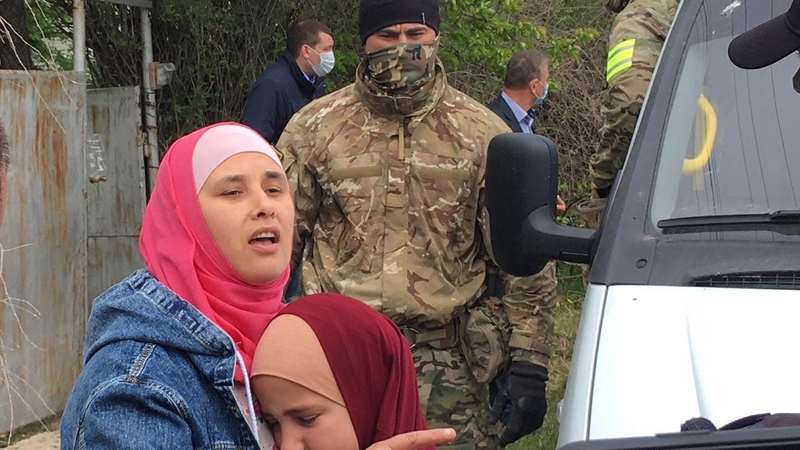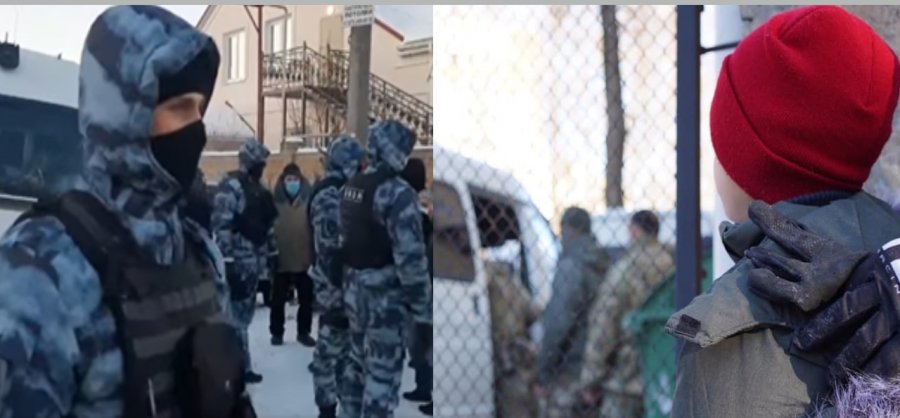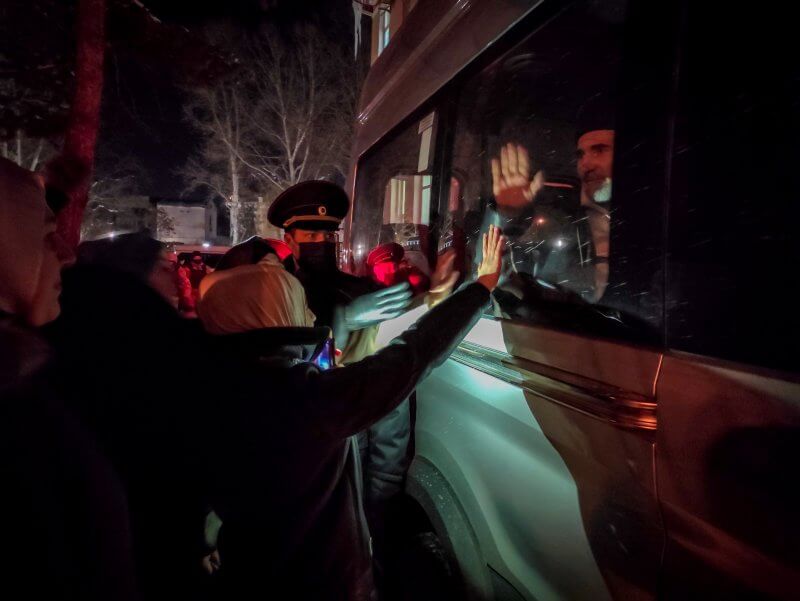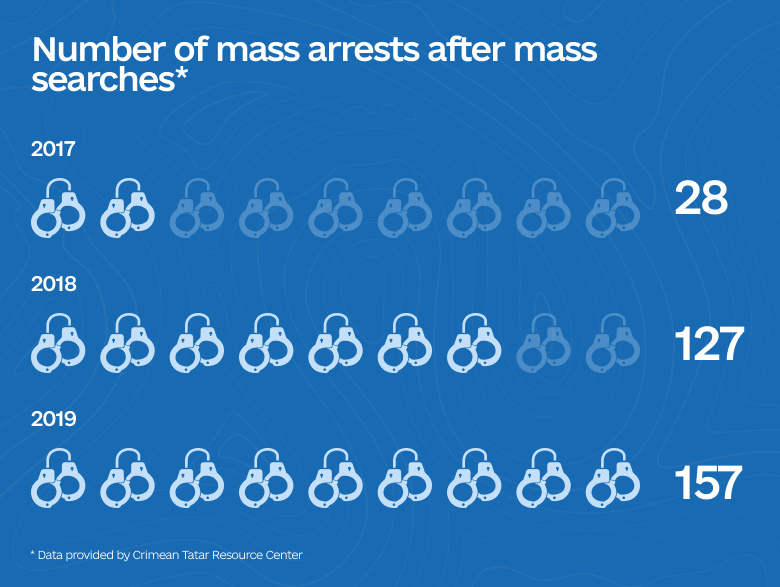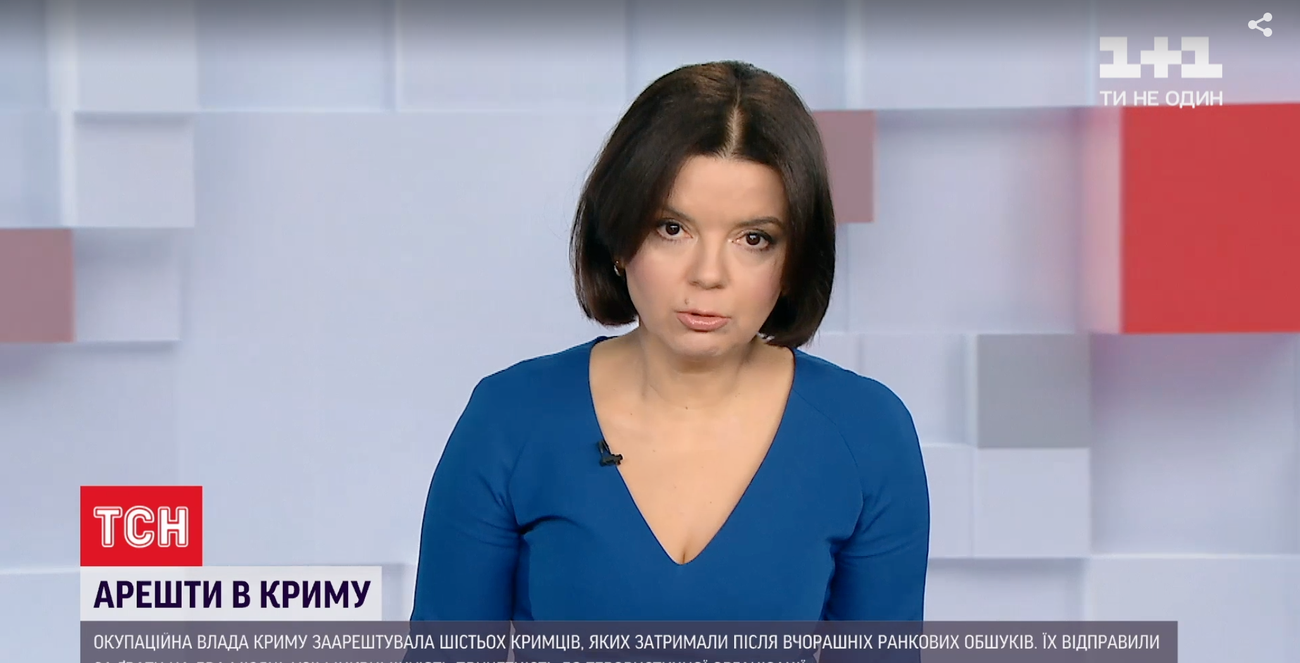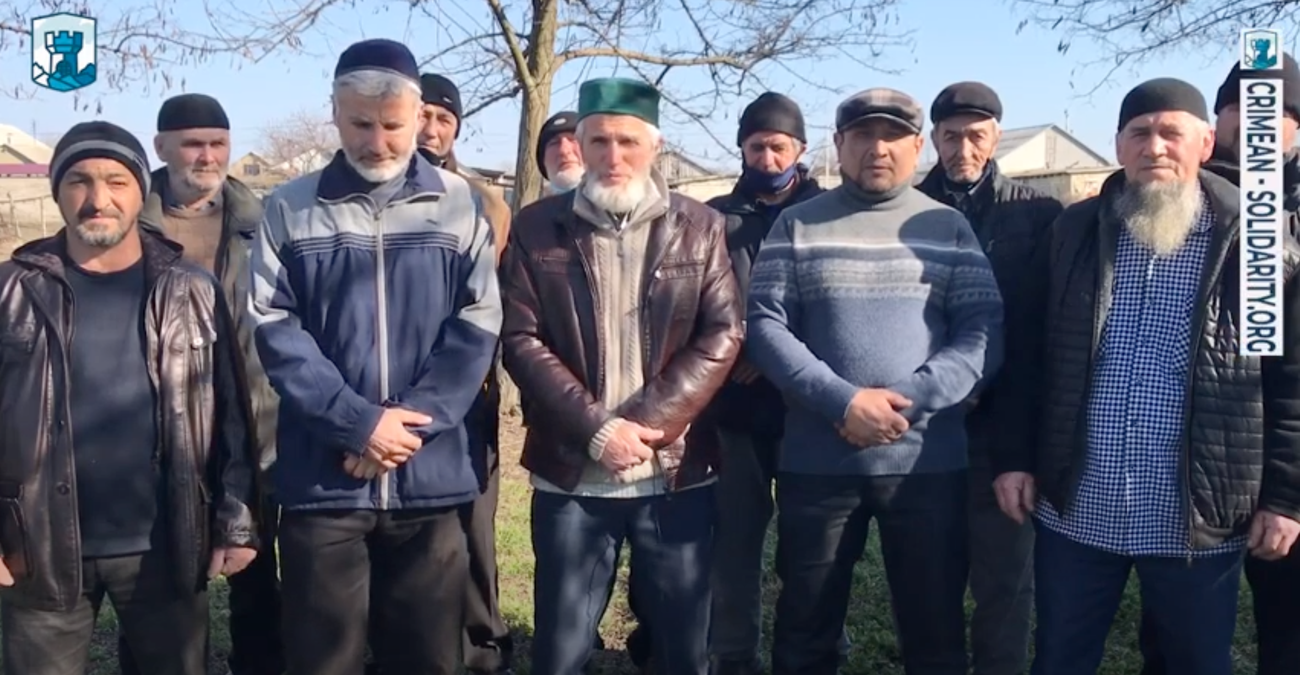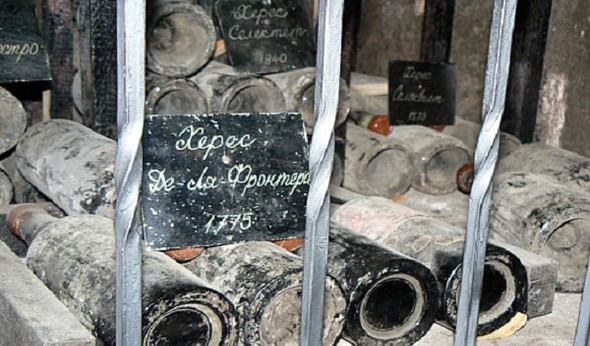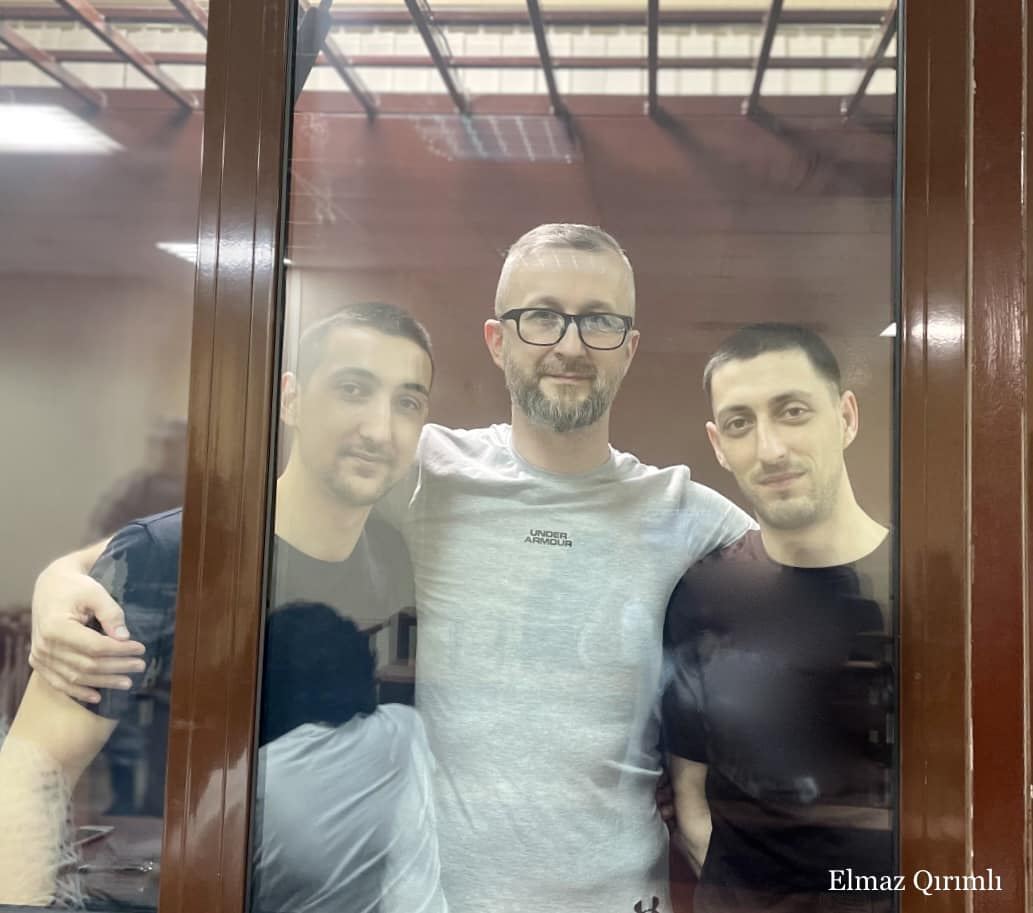Search and detention of Ernest Ibragimov, Azamat Eyupov, Lenur Seidametov, Timur Yalkabov
Public outrage as the occupant invades private houses
 Simferopol, Bilohirsk, Bakhchysaray
Simferopol, Bilohirsk, Bakhchysaray
 2021-02-17
2021-02-17
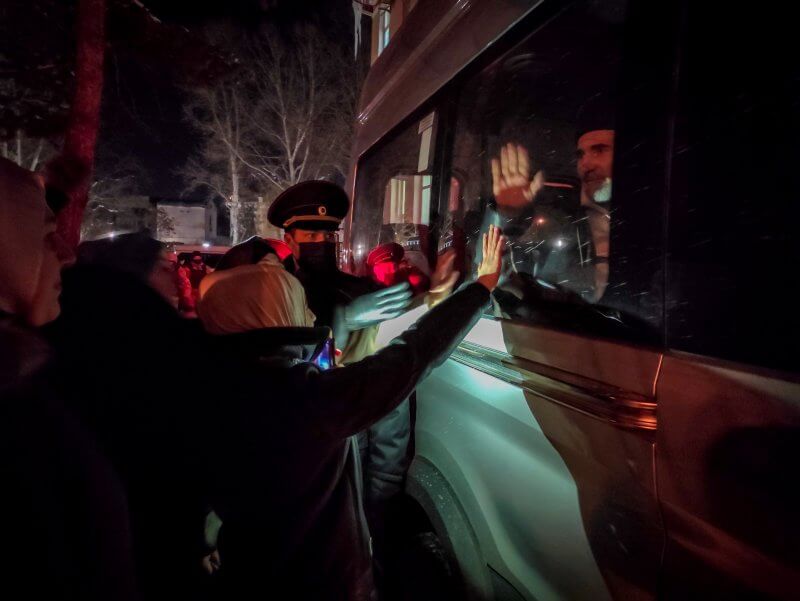
Searches of private dwellings are a common repressive practice against the residents of temporarily occupied Crimea. As a rule, they happen at night or at dawn, always illegally and often with tragic consequences for entire families and communities. The number of searches followed by the arrests is growing steadily, as is the brutality of the FSB, the Center for Countering Extremism (Center E) and the riot police involved in these acts of violence. The enforcement agencies are fighting against the public activism by way of extensive invasions into private dwellings which are often held in various places of Crimea simultaneously. These actions are planned in such a way that local communities would lack the human and organizational resources to mount an adequate response. However, the Crimean Solidarity promptly records such events and makes them known to the public. In this context, searches and detentions on 02/17/2021 and what happened over the next few weeks as local residents joined their efforts in support of the Crimean political prisoners, would be an illustrative example. Carried out on a regular basis, politically motivated searches incite new waves of protests by the Crimean Tatar activists, simultaneously giving grounds for the Prosecutor's Office of the Autonomous Republic of Crimea to open new criminal cases in mainland Ukraine.






